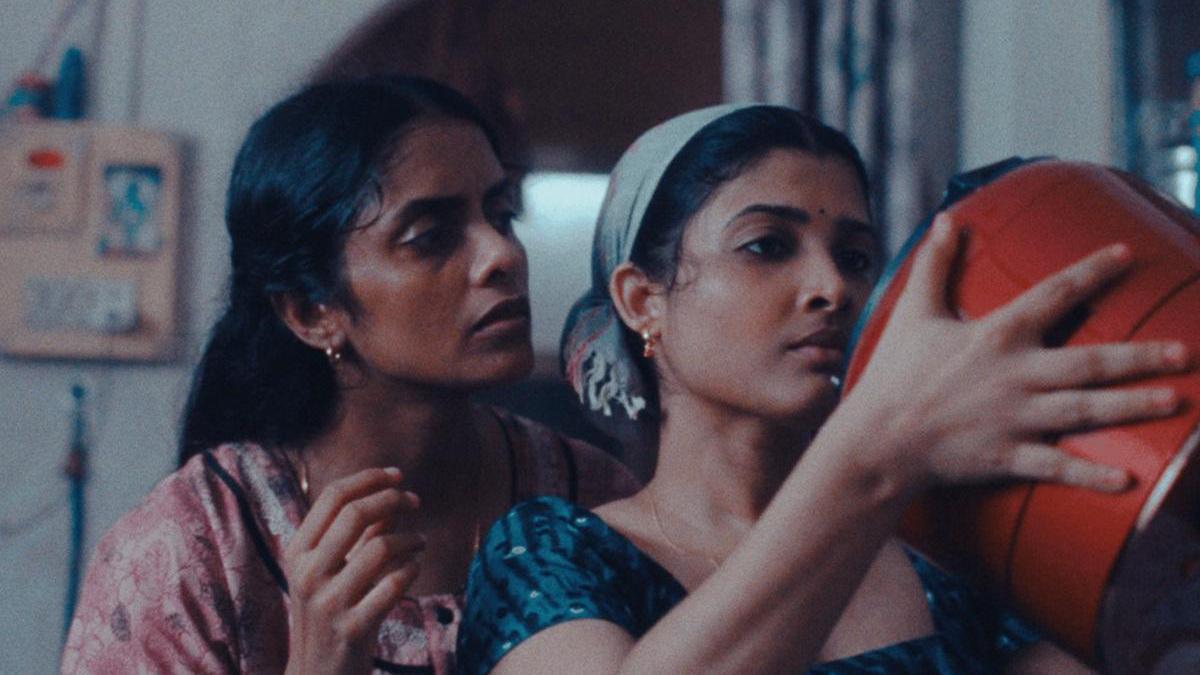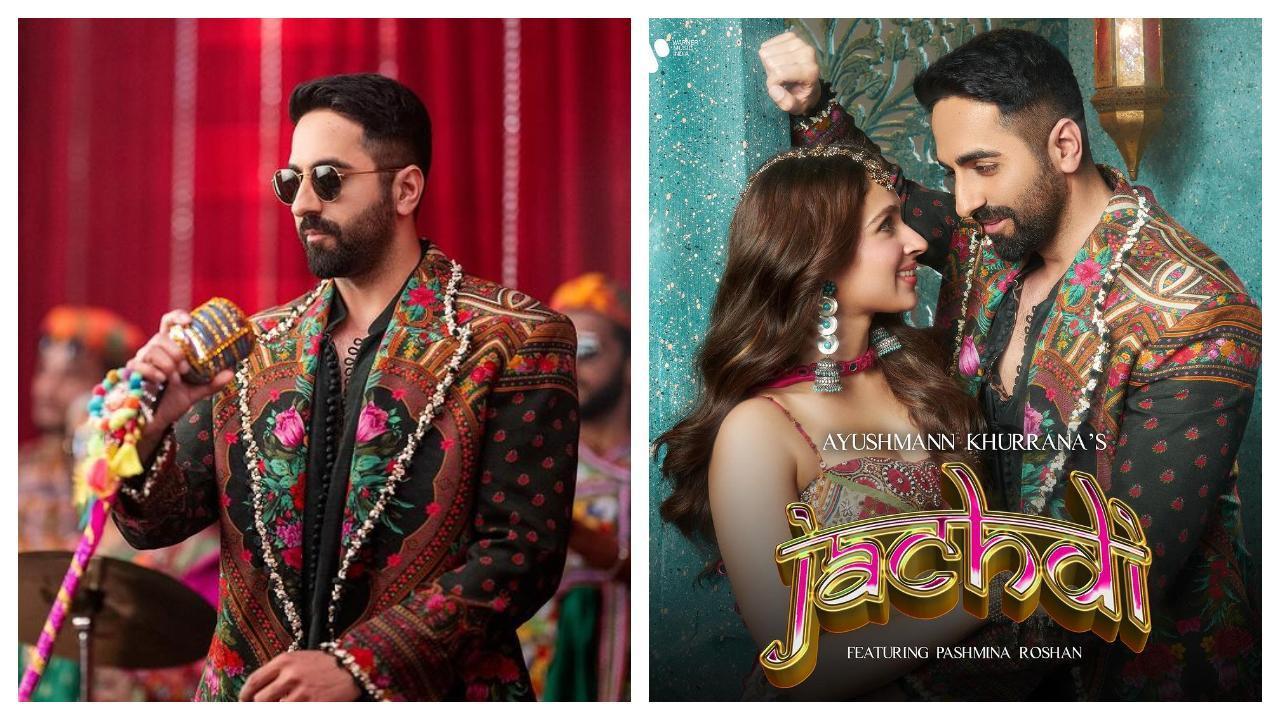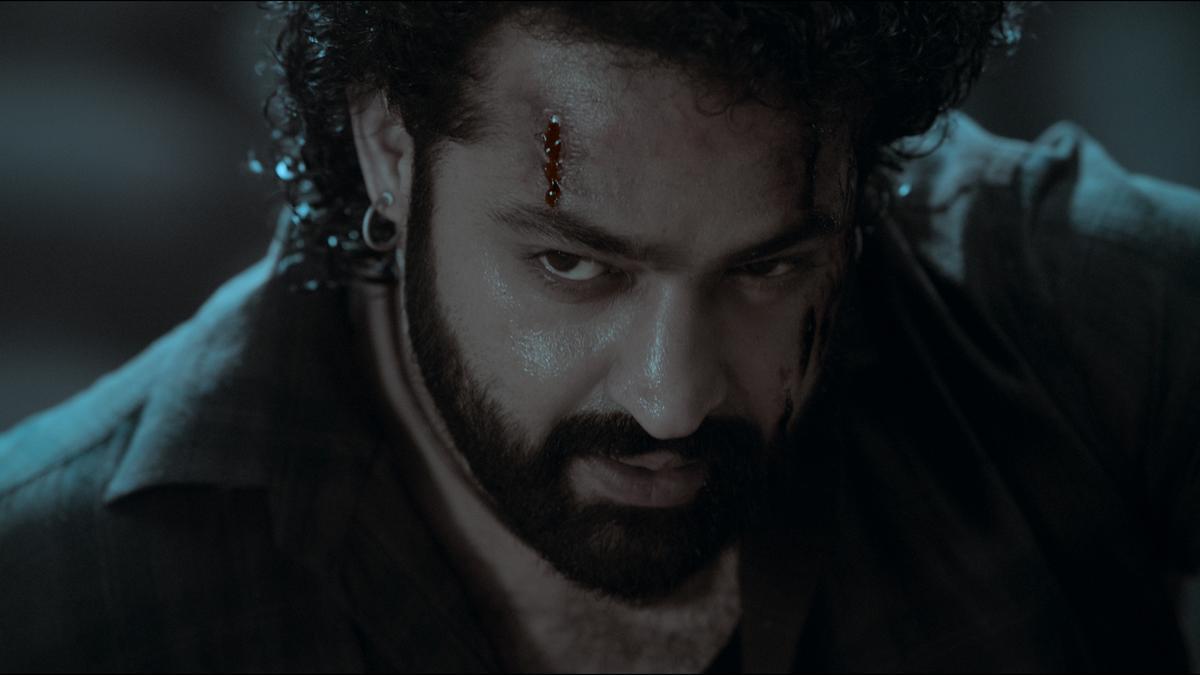
When the term “spirit of Mumbai” is mentioned, it often brings to mind the city’s collective resilience, especially following significant disasters. Typically, it connotes the tenacity of the nameless, everyday citizens who, lacking the luxury of staying safely indoors, head out driven by this indomitable spirit. However, Payal Kapadia’s debut feature film, “All We Imagine as Light,” subverts this notion, instead spotlighting the less privileged, giving them center stage and a resonant voice.
The film opens by letting the voices of the multitude resound. These are the myriad voices of people who flock to Mumbai from all corners of India in the pursuit of a better life. Kapadia’s documentary background shines through in these sequences, grounding the narrative in a palpable reality. Among these voices, the story narrows its focus to three protagonists: Prabha (Kani Kusruti) and Anu (Divya Prabha), both Malayali nurses, and Parvaty (Chhaya Kadam), an employee at the same hospital. They stand as representative figures of those who are drawn to the city for survival and sustenance.
The narrative artfully veers away from chronicling their professional challenges, instead delving deep into their personal worlds, illuminating their inner lives, desires, disappointments, confusions, and even biases. Prabha, marked by an air of weariness, has been in Mumbai for years. Her concern is a husband who has seemingly forgotten her after moving to Germany for work. Their last conversation was over a year ago, and she confides in a friend that he perhaps has nothing more to say.
In contrast, Anu is brimming with the exhilaration of newfound freedom and the thrill of a clandestine romance with Shiaz (Hridhu Haroon). However, Prabha, ingrained with patriarchal values, finds Anu’s behavior troubling and cannot help but voice her concerns. Despite this, Anu remains undeterred, increasingly bold in both her professional and personal escapades, even as she grapples with uncertainties about her future.
.
Parvaty, the third protagonist, faces her own struggle as she deals with the impending eviction from her home of over two decades. Without proper documentation to claim her dwelling legally, she finds herself at the mercy of relentless real estate developers. These formidable adversities in their lives create bonds among the three women, tying them together in a solidarity that is both poignant and powerful.
The film avoids dramatizing their unity as acts of rebellion, with the possible exception of a delightful scene where they hurl stones at a builder’s advertisement hoarding. Instead, it is about their mutual support and presence for each other. As the story unfolds, it transitions from the ceaselessly bustling nights of Mumbai to the tranquil, sun-drenched serenity of a seaside Maharashtrian village. In an inspired piece of writing, Prabha experiences a moment of closure in a scene that wavers between reality and imagination, leaving the audience with a sense of unfulfilled longing as the filmmaker opts for a gentle, open-ended conclusion rather than a definitive resolution.
Kapadia successfully infuses a lyrical quality into the mundane moments of the film. Mumbai, often shrouded in romanticized notions, is depicted with a refreshing authenticity—its chaotic rains morph from a celebrated trope to a frustrating obstacle to a romantic encounter. The visual storytelling captures the expanse of the city—endless rows of dimly or brightly lit apartment windows, the ever-moving suburban trains, and the teeming populace—emphasizing that the stories of the three protagonists are emblematic of the countless outsiders who call Mumbai home but still find themselves estranged from it.
“All We Imagine as Light” reverently pays tribute to Mumbai and its outsiders, portraying a city that is as much a character as the individuals it seeks to shelter. It is an homage to those who cannot entirely call it home, yet find themselves unable to leave.
Currently screening in select theaters in Kerala, “All We Imagine as Light” shines as a testament to Payal Kapadia’s masterful storytelling, illuminating lives often relegated to the shadows. It is a cinematic journey worth embarking on, reflecting not just the resilience of Mumbai but the intricate inner worlds of its resilient people.










